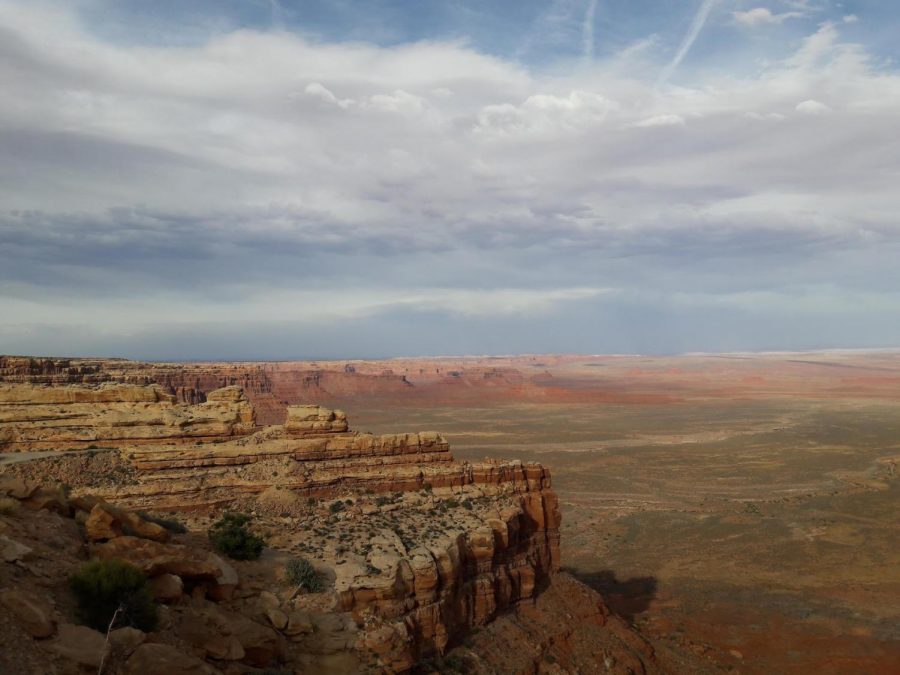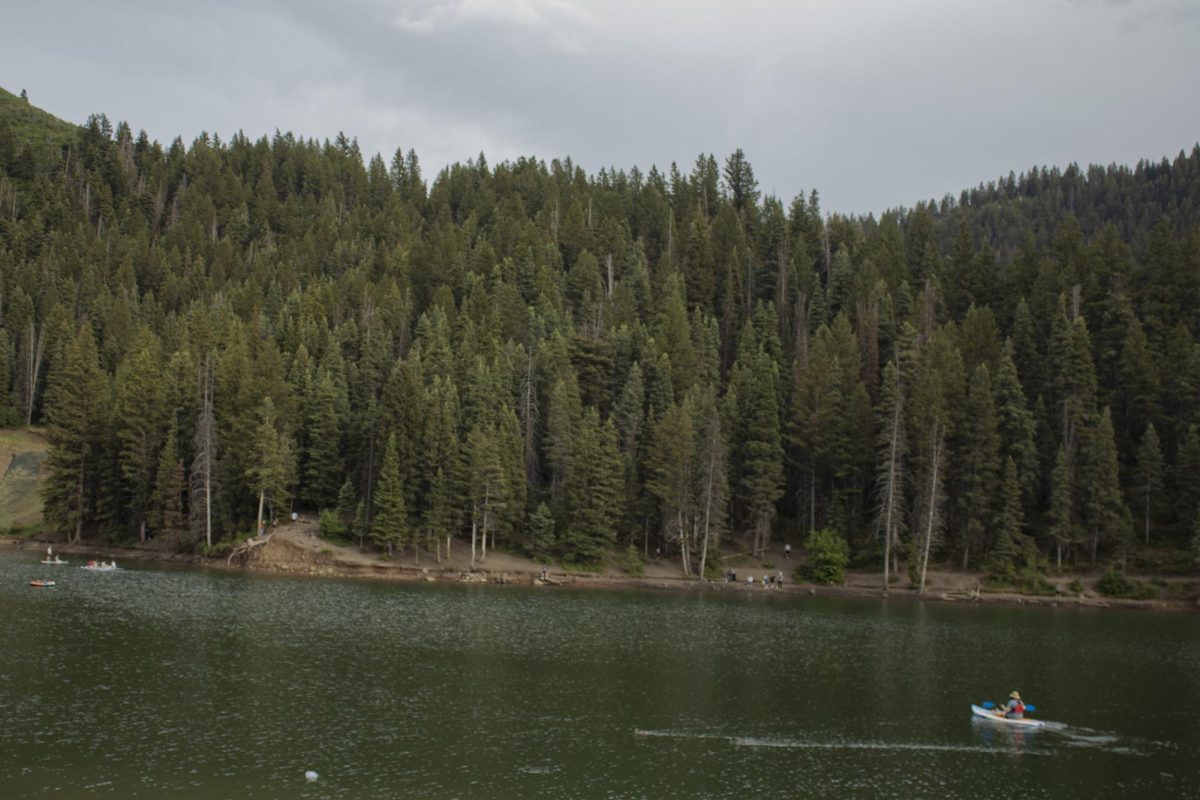The Environmentalist Eye on the 2020 Election
October 15, 2020
The relationship between politics and the health of the environment has been long-standing in the United States, dating back to 1872 when Yellowstone became the first protected national park. Each day, modern science and technology tell us more about the ways that human behavior affects the natural world. It takes more than just protecting certain areas to prevent environmental collapse. The decisions made by our elected officials will determine if the planet remains healthy and habitable in the future. Over the last four years, the Trump administration has made several decisions that impact the air, water, land and wildlife of our country. The natural world provides a seemingly endless amount of necessities and benefits for humanity, and these are often taken for granted. Heading into the 2020 election, America will have to consider the environmental implications of their vote.
Many citizens recognize the recreational value of wild, untouched spaces. Experiences with the wilderness can offer inspiration, healing and wonder. Research has shown that nature benefits our physical wellbeing too — it can lower your blood pressure, reduce muscle tension and slow the production of stress hormones. Few individuals are aware of the ecosystem services and natural capital that nature provides. The economy created by humans relies almost entirely on naturally occurring resources, many of which are naturally regulated and replenished as well. Natural capital is a term for resources such as minerals, forests, water, fossil fuels and oxygen. It also includes phenomena necessary to sustain life, including temperature regulation, carbon dioxide absorption and food production. The earth and its natural areas are plentiful so long as they are used sustainably. The cheapest and most efficient way to harvest these resources, however, is rarely the most environmentally favorable way. Without environmentally conscious regulations, capitalism pushes corporations to grow and compete at the cost of ecosystem health. In addition to our direct interactions with these ecosystems, the indirect impact of human activities must also be considered. In the United States, carbon emissions reach approximately 16 tons per person every year. The atmosphere is overloaded with pollutants and the commercial industry continues to add to these substances each year due to an increase in production and a lack of regulation. State and local governments are able to place limits on emissions in order to encourage companies to utilize cleaner solutions. An increase in carbon emissions plays a huge role in accelerating climate change. Such rapid change is dangerous to the ecosystems that support life and provide raw materials.
Climate change requires preventative measures in order to not continue, and once we pass certain tipping points, the effects will become irreversible. If the pictures of drowning polar bears aren’t enough to convince you, consider what human life will look like when we’ve exhausted our natural resources or damaged the ecosystems that provide them so badly they become irreparable. Climate change, as well as other human activities, is depleting natural capital. This is a threat to the livelihood of billions, as well as access to resources such as water and clean air for communities worldwide. The changes are not immediate, however, and this is one of the reasons why it can be difficult for all groups of people to see. The solutions will not present themselves. The causes are complex and woven deep into our culture and daily lives. The necessary changes are expensive and time-consuming. It requires swift legislative action and commitment.
A series of near-sighted decisions have made it clear that the priority of the Trump administration is fast and unsustainable economic growth. They have rolled back environmental protections, including the downsizing of two national monuments in order to open these areas for business with mining and drilling companies. As one of Trump’s first environmental actions, he pulled the United States out of the Paris Climate Agreement. His EPA also rolled back the Clean Power Plan of the Obama administration, which aimed to reduce carbon emissions by 32% before 2030. They claimed that this goal put unfair burdens on the power sector and was part of the larger “war on coal.” Under his administration, climate change was removed from the list of national security threats. The Trump administration has shown a complete disregard for the danger of anthropogenic activity to natural ecosystems. His campaign website fails to mention the environment or the growing concerns of its advocates. It does mention his 19 billion dollar disaster relief bill that provided assistance to states and territories that were hit by hurricanes, wildfires, and other natural disasters. It also provided for farmers suffering due to a late planting season. These extreme weather events and altered seasons are related to climate change. Rather than throw that money at the resulting wreckage, America could invest in the research that could lead to efforts preventing a higher frequency of natural disasters of this kind. Climate change threatens to become irreversible in the next 12 years. We are the last generation with the power to prevent this dangerous and permanent change. These large-scale changes cannot be accomplished on the individual level, however. Energy production accounts for 72% of all emissions. It’s not simply enough to carpool or ride your bike to work, what we need is policies that hold these companies accountable.
The alternative platform in 2020, the Biden/Harris ticket, acknowledges the urgency of addressing the environmental impact of the United States. The Biden campaign’s main environmental focus is on clean energy. Biden plans to invest $2 trillion into spring-boarding projects in the auto industry, public transportation, housing, innovation, infrastructure, agriculture and the power sector of the United States. He intends to convert the entire power sector to American made, carbon-free energy by 2035. Investment in modern, sustainable infrastructure in this country could restore the possibility of slowing down climate change. Although progress has been halted and even reversed for the last four years, the November election gives a chance to bring these issues back into the discussion. Can we really afford another four years of denial?











